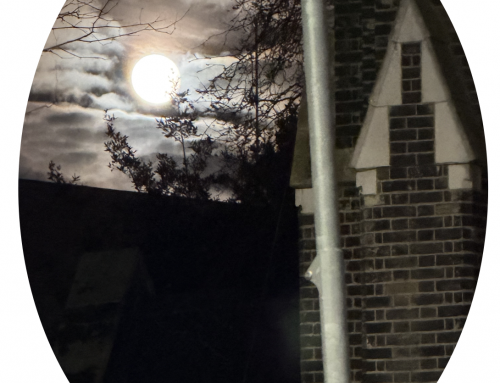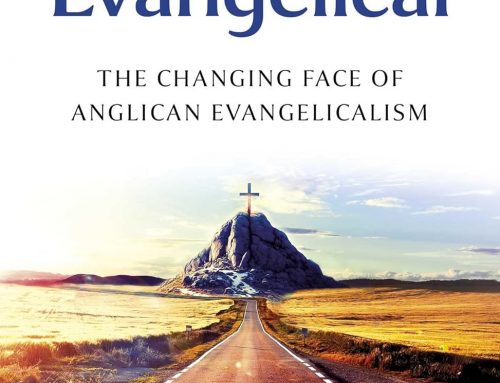Pondering the essence of worship – a reflection
Mark Rudall

The Rev’d Mark Rudall is a retired priest and communications director
I have a love affair with my local river.
The sheer beauty, joy and peace I find on it relaxes and delights me beyond words and is something I like to share at every opportunity.
Over many years I have offered, as part of my ‘giving to the kingdom’ I suppose, to run quiet days on the river for clergy teams. It may be the vicar, curate, churchwardens and church administrator or it may be groups of clergy from a deanery.
Sometimes we pause, tuck ourselves into a backwater, and share an intimate Communion together in the stillness. My characterful and very old open launch has modern inboard electric power and runs practically silently so conversation on the move is unhindered by background noise.
‘Emerald’ was bequeathed to me from a friend, and she quickly established herself as an almost perfect platform from which the glory of God’s creation can be observed as the seasons roll by. The boat encourages reflection of a sort that has altered my way of appreciating the river.
A day with a group from a nearby parish, however, cast a subtle new light on all this. All of them much younger than me, their day focused on an agenda discussing a vision statement. The boat and river simply provided an unusual setting and it was commented that ‘we need to start with worship’ before a guitar was unpacked and songs were sung. Near the end of a song, though, I suddenly spotted a kingfisher dead ahead, scudding along the surface of the water. We don’t see these little beauties every day and I called out involuntarily. However, only I glimpsed the stunning flash of the sun on electric blue as the tiny bird disappeared into an overhanging tree and I felt slightly embarrassed about breaking the sense of ‘worship’.
It struck me that while out on the water, for me, the whole experience is usually what might be described as ‘holistic’ worship that lasts all day.
The serenity of the river embraces those who float on its reflecting surface beneath which we cannot see. That sense of mystery may be among the many reasons why people love to be near rivers and lakes. Such a setting shows me the creative hand of a loving God who has poured out his artistry for us to enjoy. Yes, I can sing, but it’s not so much my voice as my soul that wants to sing its own silent song of praise as I see the seasons and the light and the growth of flora and fauna constantly changing, drawing all my senses into the embrace of God’s love and provision.
Over the last 50 years, in certain Christian traditions worship has come to be understood by some simply in the reduced sense of standing to sing songs. Over its two millennia of existence Church musical traditions the world over have grown and waned, seen periodic restriction and release, but God’s people seem always to have wanted to sing and take joy in doing so.
Music and singing have contributed to a rounded sense of worship having form and structure – the word for that is ‘liturgy’ – with words spoken as a body and periods of listening. Silence has for some people dropped into abeyance. It seems that the outside world, so full of noise in our 21st century, has enabled noise itself to become a kind of comfort zone for many for whom silence and reflection can be scary.
As I grow older I long for peace and would even say I crave the silence and the beauty that, uniquely, the river offers to a personality like mine. At the height of what is perceived to be our ‘career usefulness’ our Myers-Briggs personality profile may be very different from that which evolves as the years, the shocks, the delights, the struggles and the joys accumulate. I have always loved water and the rivers, but now I love the way that environment surrounds my senses with ever changing insights into the astonishing provision of a God who, himself, never changes, but in his grace continues to provide for us, despite our failures as custodians of his creation.
I think my desire for the peace of reflective, silent worship, the worship of a reflective heart, may not be unique at all, but it highlights why older generations of worshipping believers often feel in tension with those who are younger.
So what can be done to help the upcoming generations with whom older people share worship?
I have been reminded that the heart of worship is an earnest seeking to draw near to God. That is true for all traditions and the mainstream catholic understanding of the pathway to achieve that is through the liturgy, so, as someone commented, ‘we don’t go running off naked through the woods in our search for him.’ The answer, of course, lies in our ability to receive and pass on the grace of God. Our needs are simply different from the perceived needs of later generations and we cannot control that. What we can control is our responses to worship trends, which we probably went through ourselves.
In much earlier generations these tensions didn’t exist to anything like the sharp degree that they were present for mine and are present for upcoming generations.
I grew up in the 1960s Baptist tradition of which it was said: ‘What do Baptists stand for?… ‘Four hymns and a benediction’. People had to worship in their local churches because transport was not available to take them to a favourite worship venue full of people like themselves where they preferred the music or the speaker’s style or the doughnuts after the services. Everyone came together in their communities and rubbed shoulders. Worship was generally desperately rigid and lifeless with prayers punctuated with King James Bible derived ‘thees’, ‘thous, ‘thines’ and ‘didsts’. Hymnody, even then was largely Victorian or earlier and the organ was regarded as sacred even if being played by someone apparently wearing boxing gloves and snow shoes. Way back in the days before broadcasting, music fashions, for example, were much less evident than they became in the mid twentieth century so music for worship did not follow pop trends and demand its associated up-front performance styles and gimmicks – such as the instrumental bridges that leave congregations standing in silent bemusement in the middle of many contemporary worship songs.
So it seems to me that grace to live and worship alongside those who are younger is something each generation has to embrace but can so easily fail to do. I need to recognise that others may miss what I see and others may not take the same delight in the things that raise my heart heavenwards. Our personalities have been so differently conditioned.
That must simply ‘be’: for if the Spirit of God is to be allowed to thrive in our very mixed church communities, we can offer what we can, but we cannot force others to see things as we might – and we never be in a position to share deeply with those we would so much like to gift the delights we have enjoyed. So we love from a distance, we observe and we pray, because we’ve probably done what we were called to do.
Mark Rudall
September 2024





